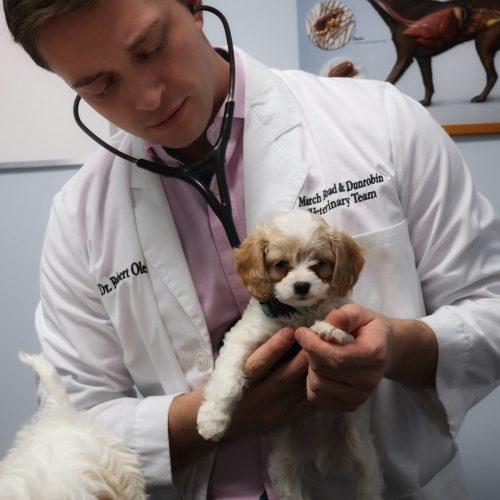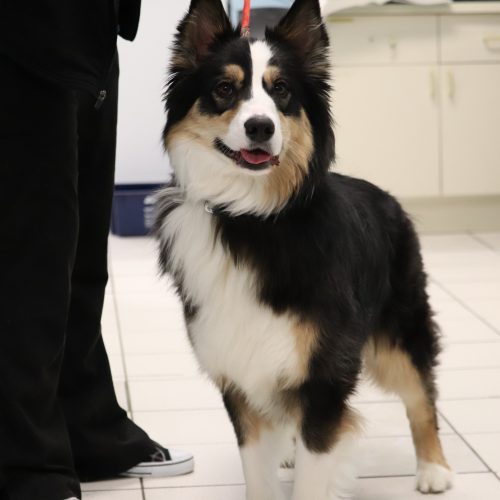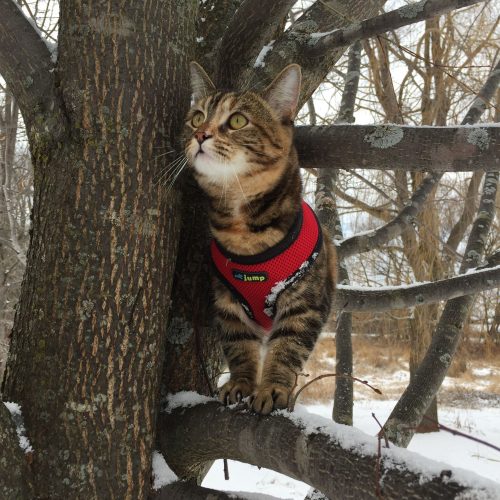It is that time of year again. Your pet is due for their annual physical exam and vaccination. A physical examination is a very important part of your pet’s overall health care. Our pets have very strong natural instincts and in the wild showing signs of weakness make them vulnerable. Thus our pets will try to hide when they are not feeling well and often only show signs when they are unable to mask them any longer. So do not feel bad if you do not notice your pet is sick, that is our job.
A wellness exam performed by one of our veterinarians includes a complete examination from the tip of the nose to the tip of the tail and everything in between, enabling us to develop a healthy profile for your pet. Examination of the eyes can show early cataracts, inflammation, or degenerative changes. Dental exams are important to catch painful or infected teeth. Listening to the heart can detect heart murmurs or arrhythmias. Listening to their lungs can pick up wheezing or crackles. Abdominal palpation is important to evaluate kidney and liver size, pick up masses or discover painful areas. Range of motion of their legs can pick up signs of arthritis or hip dysplasia. Examination of their skin can help diagnose allergies or masses and lymph nodes palpation can tell you about systemic infection, inflammation and even cancer. Monitoring weight is also important to ensure your pet is not on the track to obesity or slowly losing weight because of an underlying disease.
This information will help us proactively identify medical problems and any other issue that can affect your pet’s health and quality of life. It also can help detect early signs of illness and address health issues before they progress. Early detection can improve the prognosis of many diseases, keep medical costs down, and help your pet live longer. Remember that pets age much faster than we do. 1 year in their life can be 7 years in ours. A lot can happen in that time.
Vaccines also plays an important role in disease prevention. We recommend an individualized vaccination protocol dependent on your pet’s needs, potential exposure, and travel requirements. The Ottawa region and eastern Ontario bring a unique set of bacteria and viruses that are important to account for, especially in dogs. In addition to rabies and DHPP, vaccination for lyme and leptospirosis is paramount to maintaining an adequate level of immunity for your pet as these bacteria are commonly acquired across the region. Cats are at risk for different pathogens. Vaccinating for rabies, upper respiratory viruses, and feline leukemia virus (for indoor/outdoor cats) is also important.
The primary goal is to keep your pets happy and healthy. By finding, diagnosing, and treating these potential problems early, your pet can live a much longer and healthier life.






